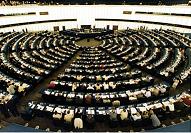Diplomacy
European MEPs remain unconvinced of Ashton's proposal for new diplomatic corps
 After weeks of wrangling, member states have agreed to a proposal to set up the EU's new diplomatic corps. That leaves the ball in the court of the European Parliament which still isn't happy with the outcome.
After weeks of wrangling, member states have agreed to a proposal to set up the EU's new diplomatic corps. That leaves the ball in the court of the European Parliament which still isn't happy with the outcome.
Baroness Catherine Ashton was relieved. Her amended plan for setting up the EU's new external action service as stipulated by the Lisbon treaty was approved in principal by the member states this week.
"I am very pleased that the Council has reached a political agreement based on my proposal," said Ashton, the EU's High Representative for Foreign Affairs and Security Policy, after a meeting of EU foreign minister's earlier this week.
With the informal approval - no official decision was made - by member states, Ashton's plan clears an important hurdle that leaves the European Parliament the last remaining obstacle to implement the EU's new diplomatic service with the goal of carrying out a common European foreign policy.
Judging by their reactions, European parliamentarians who can veto budget and personnel decisions aren't satisfied with the compromise Ashton reached with the member states and the information they have been receiving about the proposal.
"We have said that we will only start negotiating and taking a position once we have all documents on the table that we actually need to negotiate," said Franziska Brantner, foreign policy spokesperson for the Greens in the European Parliament. "And we still don't have them all."
Part of the commission or not
The main concern for parliamentarians is the command-and-control structure of the new service and the ability for MEP's to oversee its budget. Both issues, argue parliamentarians, are complicated by the fact that the diplomatic service is slated to be set up as a separate entity outside the EU commission and will not be part of the commission.
But that was not a realistic goal to begin with, says Jolyon Howorth, professor of international relations at Yale University who is currently working on a project on EU foreign policy at Berlin's Free University.
"I think that the parliament institutionally feels closer to the commission than to the council and would have preferred to have more commission control or authority, but that was to my mind never going to be the sort of compromise which would come out at the end," he told Deutsche Welle.
What is crucial, argues Howorth, is not the institutional attachment of the diplomatic corps, but to ensure the parliament's financial oversight over it.
"In terms of the budgetary dimension of it what's most important is that the parliament continues to be required to vote the entire budget rather than niggling over the specifics of the budget," says Howorth.
"They do preserve the right to vote on the entire budget at the end of the day. That's a considerable lever if they felt they needed to excercise it."
But since the new diplomatic service is planned to be set up outside the commission, parliamentarians see the need to clearly spell out that they maintain the budget authority over the organisation. This, they argue, is not reflected in Baroness Ashton's draft proposal.
"We need to have assurances about that before we can agree to anything," says Brantner. "If it's outside the commission we have to make sure that we satisfy the budgetary and democratic control rights of the European parliament."
Who's to blame?
Parliamentarians argue that it is currently not clear who is ultimately accountable for decisions made by the new diplomatic service.
"If this service is making decisions, it must be responsible for them," Ingeborg Graessle of the European People's Party said in a European parliament press statement.
Parliamentarians also argue that the idea that this new service can be set up without any additional costs - budget neutral is the preferred term used in Brussels - as planned under the current proposal is utterly unrealistic. To organize, house and train the new service which is scheduled to employ some 7,000 people in the future simply is not feasible, says Brantner. "I think you have to be very honest about that."
It looks like negotiating all those points and reaching a compromise that can ultimately win the favor of the European Parliament will ultimately mean that Europe's new foreign service won't be launched this year as originally planned.
While some European foreign ministers have urged that any further delay of the EU's new diplomatic corps will hurt Europe's role in the world, that doesn't worry Howorth:
"I don't think that Europe is going to suffer from the absence of this service throughout the greater course of this year," he says. "We waited long enough. The important thing is to get it right."
(Published by DW - World - April 29, 2010)